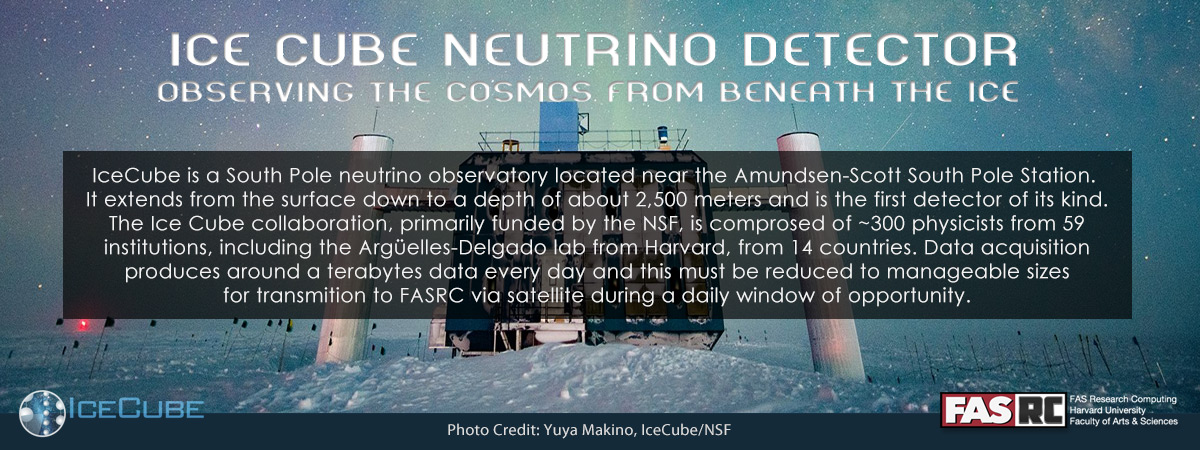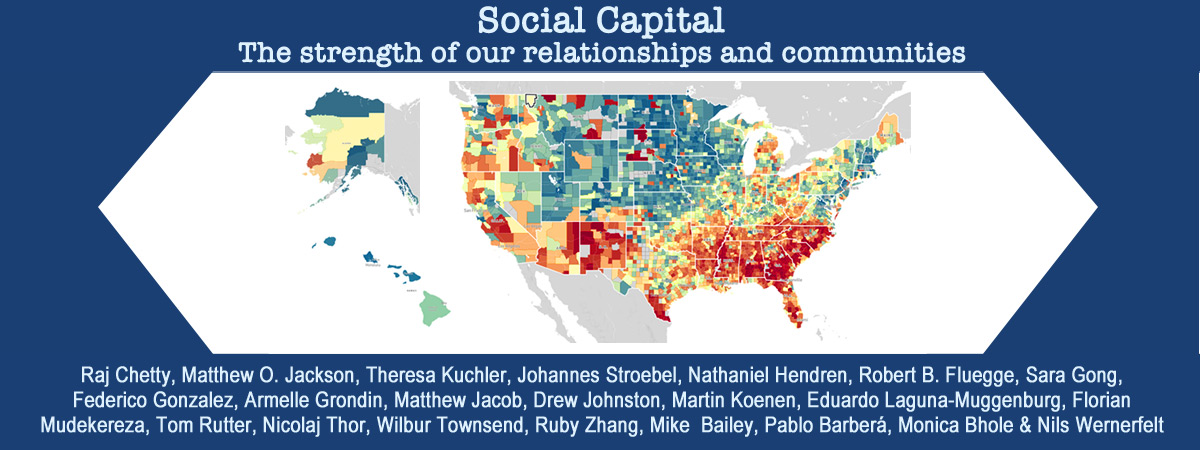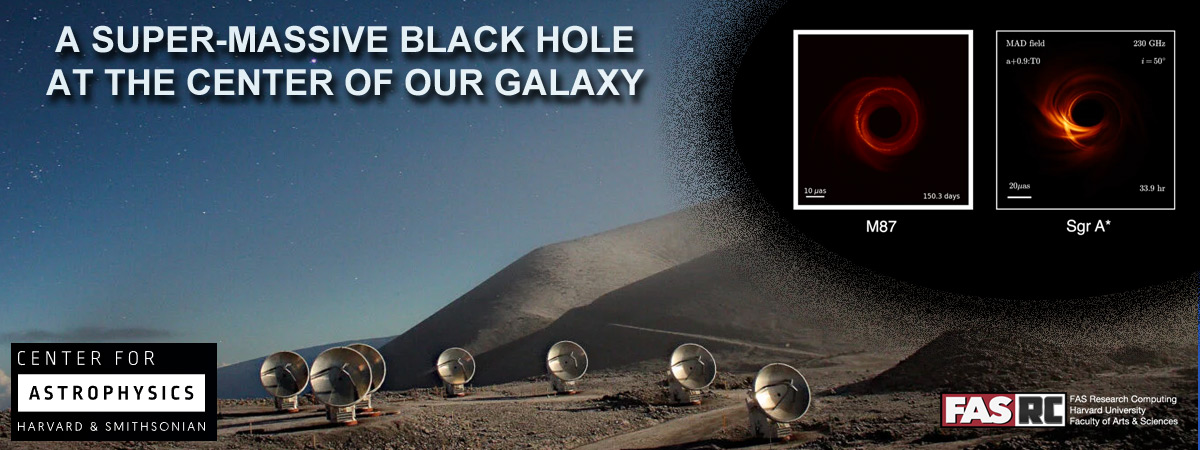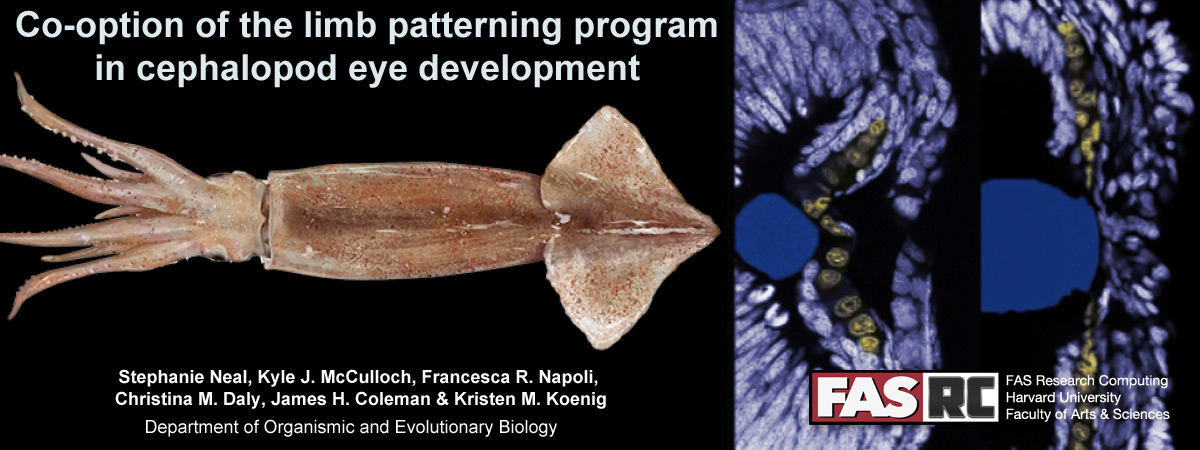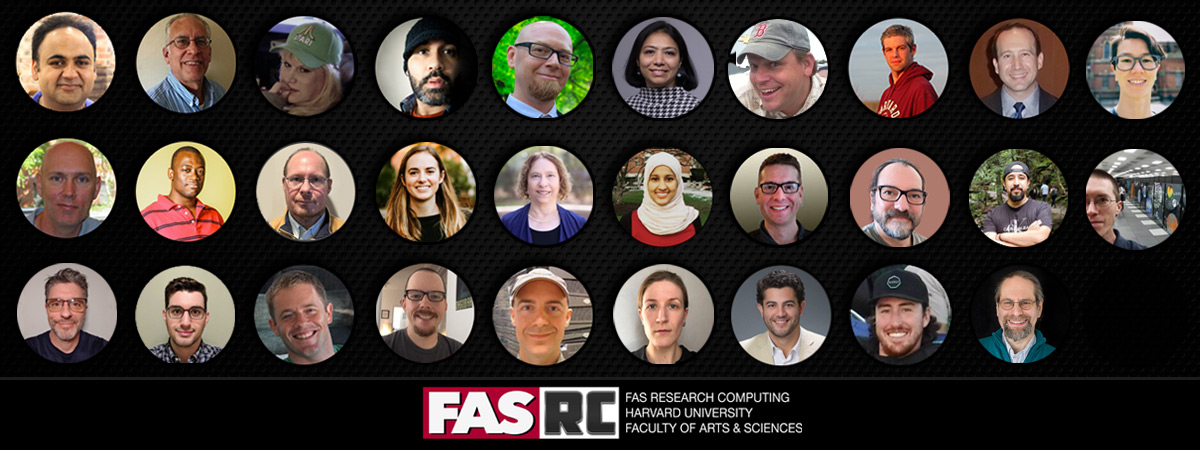Description
Research software is the collection of tools, codes, libraries that allows a researcher to generate new data or analyze and make meaning of existing data. Some software is used across many disciplines, like MatLab, R, python, whereas most are very domain specific. The majority of software is provided by the researchers, however FAS has site or volume licenses for several packages for cluster and/or desktop use, which are provided at no cost to faculty and students. Licenses are usually available upon request. For software that is needed on the cluster, FASRC can install codes in a common location. Desktops installation of software is self-service or can be done by your local HUIT Desktop support group.
RC will also help you acquire any other software you may require for your research, or help you determine which packages are most appropriate for the types of analyses you want to do. These packages are purchased individually for each user and are charged to research accounts.
Definitions
Software Types:
Open Source - software in which source code is released under a license in which the copyright holder grants users the rights to study, change, and distribute the software to anyone and for any purpose. Typically, open-source software is developed in a collaborative public manner.
Commercial - any software or program that is designed and developed for licensing or sale to end users or that serves a commercial purpose. Commercial software was once considered to be proprietary software, but now a number of free and open-source software applications are licensed or sold to end users. Off-the-shelf software programs, to be used with little or no modification, are examples of commercial software.
Custom - software solutions that are specially developed for a specific user or organization and may include solutions that have been designed to run on specific hardware (embedded software). Such software is used to address user needs that cannot be met by more traditional and widespread off-the-shelf software. Custom software can also be modifications or extensions, for specific purposes, of Open Source and/or Commercial software.
Licensing Types:
- Perpetual license - typically authorizes an individual to use an application indefinitely. Generally, outside of termination, a perpetual software license allows the holder to use a specific version of a given software program continually with payment of a single fee. Along with a perpetual software license, the vendor typically provides a technical support period of one to three years. During this initial period, the vendor also provides software updates often. However, updates may or may not be provided for free in perpetuity.
- Subscription License - typically authorizes an individual to use an application for a defined period. This might be 30 days (a monthly subscription) or 365 days (an annual subscription.) Subscriptions typically have no defined end or termination date and they automatically renew after the initial term.
- Individually Licensed – Individual Licenses can be based on per machine or per user and typically reflect the use of an application by an individual
- .Floating License - approach in which a limited number of licenses for a software application are shared among a larger number of users over time. When an authorized user wishes to run the application they request a license from a central license server.
Buying and Installing specific software. Software for use on the (Linux) FASRC cluster can be purchased by an individual, lab, or through Harvard licensing. Installation will typically occur by the research computing group either generally (to be available to all users) or within a specific user's space and be available to a limited number of individuals. Responsibility of troubleshooting and the stability of an application will vary depending on the software title. Software titles specifically supported by the research computing group are the ones we provide annual training for. Ad-hoc installation requests will be supported as defined at the time of request.
Service Expectations and Limits:
Software installations are always done as a best effort, and fall behind other services like running the cluster, data storage, and VM infrastructure. Typical scientific software is “home-grown” at Universities over time, and quite sophisticated with little documentation. These codes are largely written in C/C++ or Fortran and require compilation on our cluster to work effectively. This process can take a week or two depending on how many library dependencies must be rectified first.
Licensed software have a limited number of seats (or tokens), in which each job must consume. When a token is unavailable, the job will continue to pend and not start. Also, the FASRC license manager is a single server (not a high-availability setup), that provides license tokens for cluster jobs. If this server is unresponsive then, license tokens will not be available until the server is back in good health, please send in a support request. Also, licenses generally have an annual renewal date, which is up to the purchaser to renew and not FASRC. For example, SEAS maintains the license for ABAQUS, FASRC does not have the means to renew this license.
At FASRC, availability, uptime, and backup schedule is provided as best effort with staff that do not have rotating 24/7/365 shifts.
Available to:
All PIs with an active FASRC account from any Harvard School.
All access requests should be sent via email to rchelp@rc.fas.harvard.edu
Service Manager:
Service Manager: Raminder Singh, Associate Director of Data Science and Research Facilitation
Offerings
- Software Installation. Existing software on the cluster can be found on our portal here.
- Software Downloads. Distribution of desktop software for research can be found here. Requires FASRC VPN access.
- Licensed Software. FASRC runs FlexLM software manager.
- Software purchasing. FASRC works with vendors and Harvard Procurement to navigate Terms & Conditions of software contracts necessary for HPC Cluster computing. FASRC does not need to be involved in SaaS contracts as those are hosted in vendor’s cloud platform. Generally individual groups will purchase software for their Lab. Whole departments might pool resources to purchase software for their domain. Example: Chemistry and Chemical Biology purchase of Gaussian. General purpose software might be purchased by FAS with an institutional license. Example: Matlab, Mathematica, Stata, …
- Software Training: See Training for current offerings. Typical offerings include.
- MatLab
- MPI
- R
- Python

